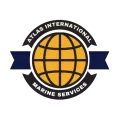
Ahoy, history enthusiasts! Today, we embark on a thrilling expedition to uncover the captivating tales of the Age of Exploration in the Pacific.
Join us as we navigate through the vast blue expanse, discovering the intrepid explorers, the uncharted lands, and the significant impact of this era on the world as we know it.
Setting Sail into the Unknown
The Motivations
The Age of Exploration in the Pacific was driven by various factors, including the search for new trade routes, the pursuit of wealth and resources, and the thirst for knowledge about the world.
Inspired by the Renaissance spirit of discovery, explorers set sail into uncharted waters, eager to unravel the mysteries of the Pacific.
Early Explorers
Ferdinand Magellan, who led the first circumnavigation of the globe, and James Cook, who made several voyages to the Pacific, mapping its islands and documenting its cultures.
These explorers paved the way for future endeavors and expanded our understanding of the vast Pacific realm.
Discovering New Lands and Peoples
Pacific Islands
The Age of Exploration revealed a myriad of Pacific islands, each with its unique cultures, languages, and natural wonders.
From the Polynesian islands, such as Hawaii and Tahiti, to Micronesia and Melanesia, these newly discovered lands sparked curiosity and captivated the imaginations of explorers and the world.
Encounter with Indigenous Peoples
The European explorers encountered diverse indigenous populations in the Pacific.
These encounters ranged from peaceful interactions and cultural exchanges to conflicts and clashes of civilizations.
The encounters shaped perceptions, influenced trade, and left lasting impacts on the indigenous communities.
Mapping the Pacific
Navigational Techniques
The Age of Exploration witnessed significant advancements in navigational techniques.
Explorers utilized tools like astrolabes, quadrant, and improved compasses to navigate the vast Pacific, enabling them to chart accurate maps and establish new trade routes.
Cartographic Contributions
The exploration of the Pacific led to the creation of more accurate maps, allowing for improved understanding of the world.
Notable cartographers, such as Gerardus Mercator, incorporated new geographical knowledge into their maps, shaping our perception of the Pacific and the world beyond.
Trade, Colonization, and Legacy
Expanding Trade Networks
The Age of Exploration in the Pacific opened up new avenues for trade, as European powers sought resources, spices, and exotic goods.
This led to the establishment of trading posts, such as the Dutch East India Company, fostering economic exchanges between Europe and Pacific regions.
Colonization and Its Impact
The exploration of the Pacific also paved the way for colonization.
European powers, including Spain, England, and France, claimed territories throughout the Pacific, leading to cultural, social, and political changes that continue to shape the region to this day.
Scientific and Cultural Exchange
The Age of Exploration in the Pacific not only brought economic gains but also fostered scientific and cultural exchange.
Botanical discoveries, ethnographic studies, and accounts of indigenous cultures enriched scientific knowledge and shaped European perceptions of the Pacific.
Final Thoughts
As we conclude our voyage through the Age of Exploration in the Pacific, we have witnessed the audacity and curiosity that impelled explorers to venture into the unknown.
Their journeys unveiled new lands, peoples, and trade routes that transformed the world forever.
The legacy of their discoveries, the clash of cultures, and the scientific advancements continue to shape our understanding of the vast Pacific.
Found this article interesting, and useful? Please feel free to interact, recommend and share.
If you have any questions about this topic or would like to discuss your own business needs, please contact us today!
